Unlocking Potential:
Solopreneurs Advancing Europe’s Economy
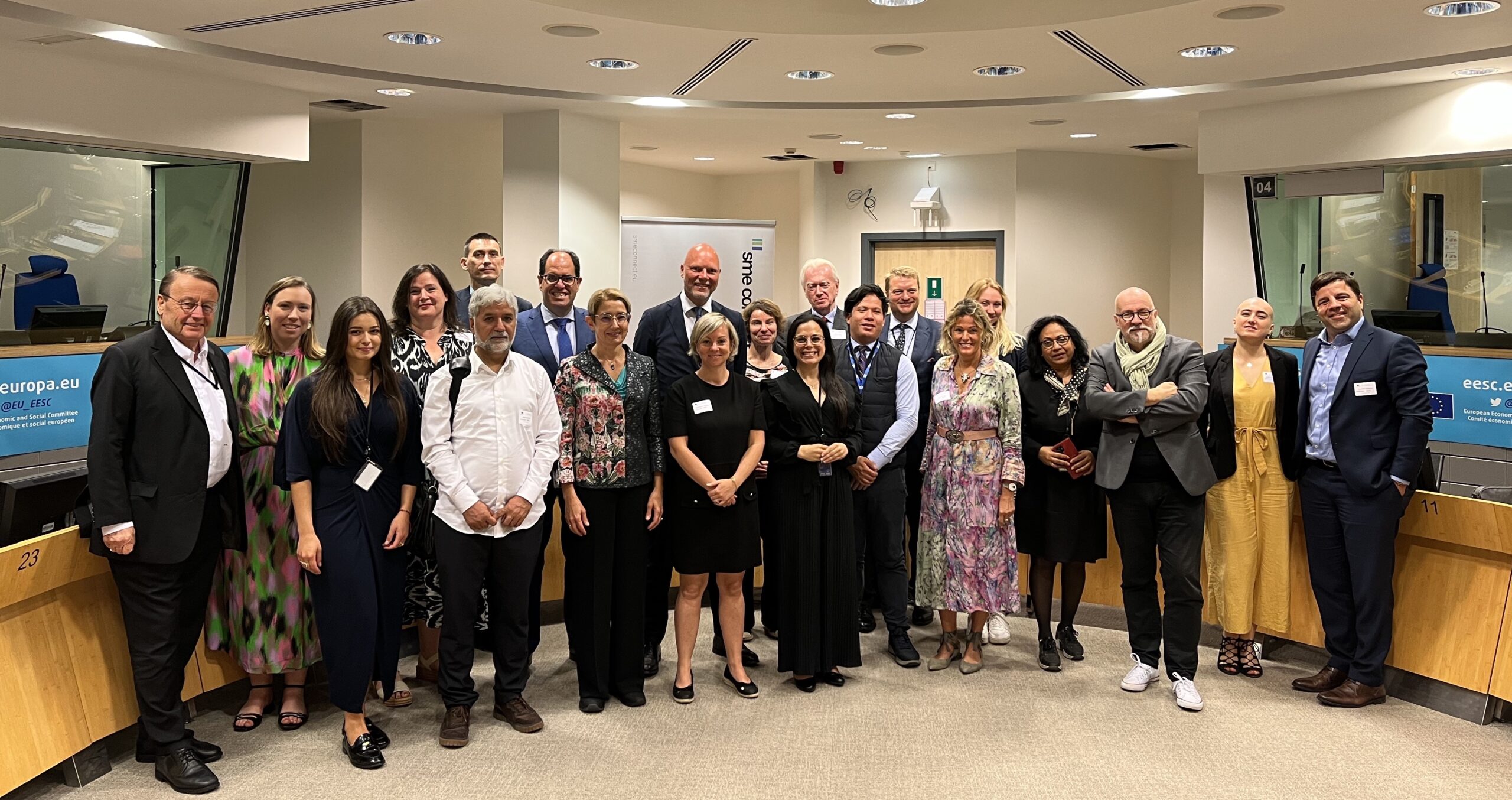
On Tuesday, 25 June, SME Connect organized a working breakfast on the topic of “Unlocking Potential: Solopreneurs Advancing Europe’s Economy” in cooperation with the European Economic and Social Committee in Brussels. The event was hosted by SANDRA PARTHIE, President of the EESC’s Section for the Internal Market. The panel featured distinguished experts including MILENA ANGELOVA, Member of the EESC, Vice-President of SGI; BONIFACIO GARCIA PORRAS, Head of Unit SMEs, DG GROW, European Commission; GIORGIA CALVARESI, Vice-President of the Junior Enterprises Europe; AMELIE BARACAT-EMPEREUR, Director EU Government Affairs Herbalife; ELIN MCCALLUM, Director and Co-Founder of Bantani Education – The EntreComp Community; and a solopreneur DIETER MICHAEL GROHMANN, Artist and Filmmaker. The discussion was moderated by DR. HORST HEITZ, Chair of the Steering Committee of SME Connect.
HORST HEITZ, initiated the discussion by stating that solo entrepreneurs constitute a significant majority within SMEs, comprising 60% of the total. Despite their prevalence, they are hard to reach, both for organizations like SME Connect and for the European Commission. These entrepreneurs require specific strategies for effective communication and support. Operating as a solo entrepreneur is a full-time commitment. For instance, even attending events in Brussels can necessitate closing their businesses for two or three days, which is a considerable effort and they often decline. Any personal disruptions, such as illness, directly impact their business operations. However, solo entrepreneurs prefer the independence their status provides. For many, this career path is not seen as burdensome but rather as fulfilling a personal aspiration. Hence, our focus should be on assisting them in overcoming these challenges.
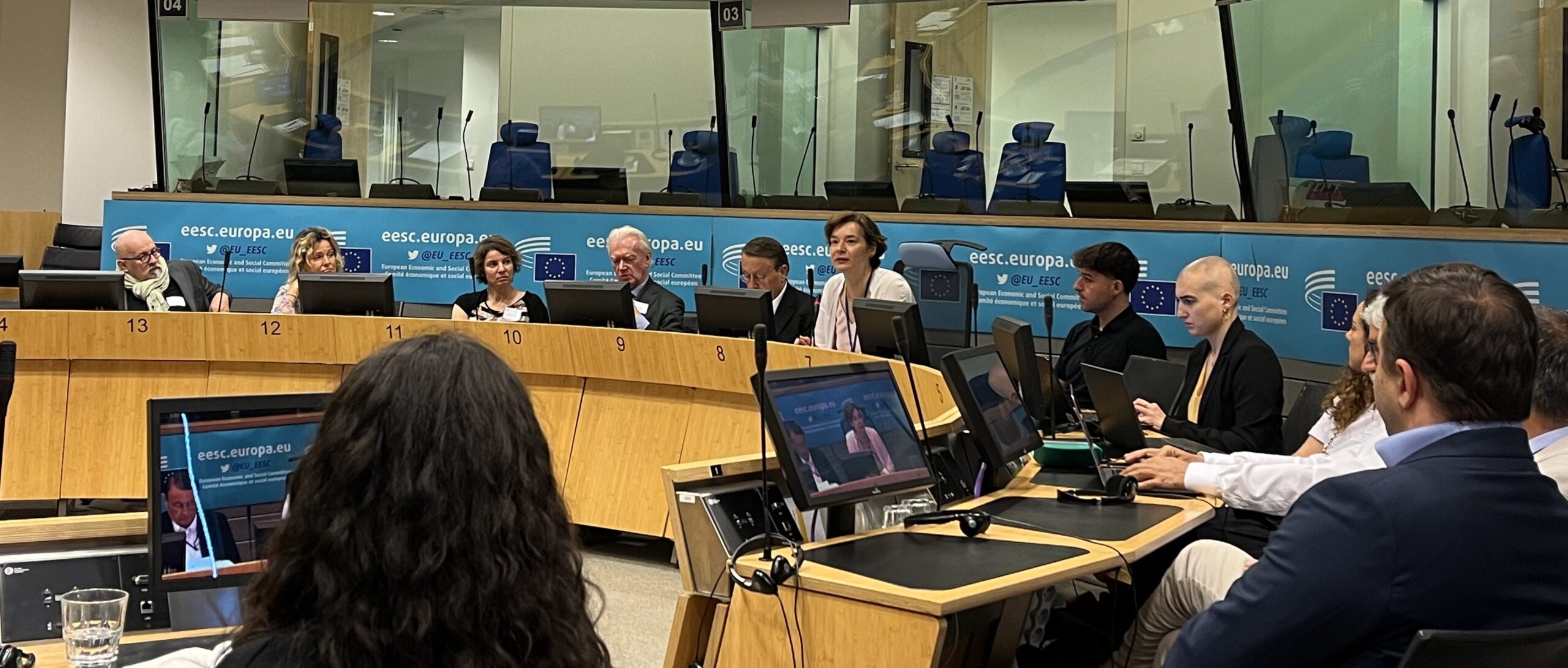
SANDRA PARTHIE in her welcoming speech emphasized that entrepreneurs are crucial drivers of economic growth, yet fewer individuals are willing to embrace the associated risks and hard work. She pointed out the unfortunate trend of businesses closing due to lack of succession, underscoring the importance of initiatives such as Germany’s Chamber of Commerce platform, which connects aspiring entrepreneurs with established business owners. She also mentioned the ongoing EESC efforts to streamline regulatory frameworks and improve access to funding for entrepreneurs. Additionally, she highlighted educational programs aimed at nurturing vocational and entrepreneurial skills in younger generations. In conclusion, she called for increased support for entrepreneurial education in schools to cultivate creativity and foster innovation.
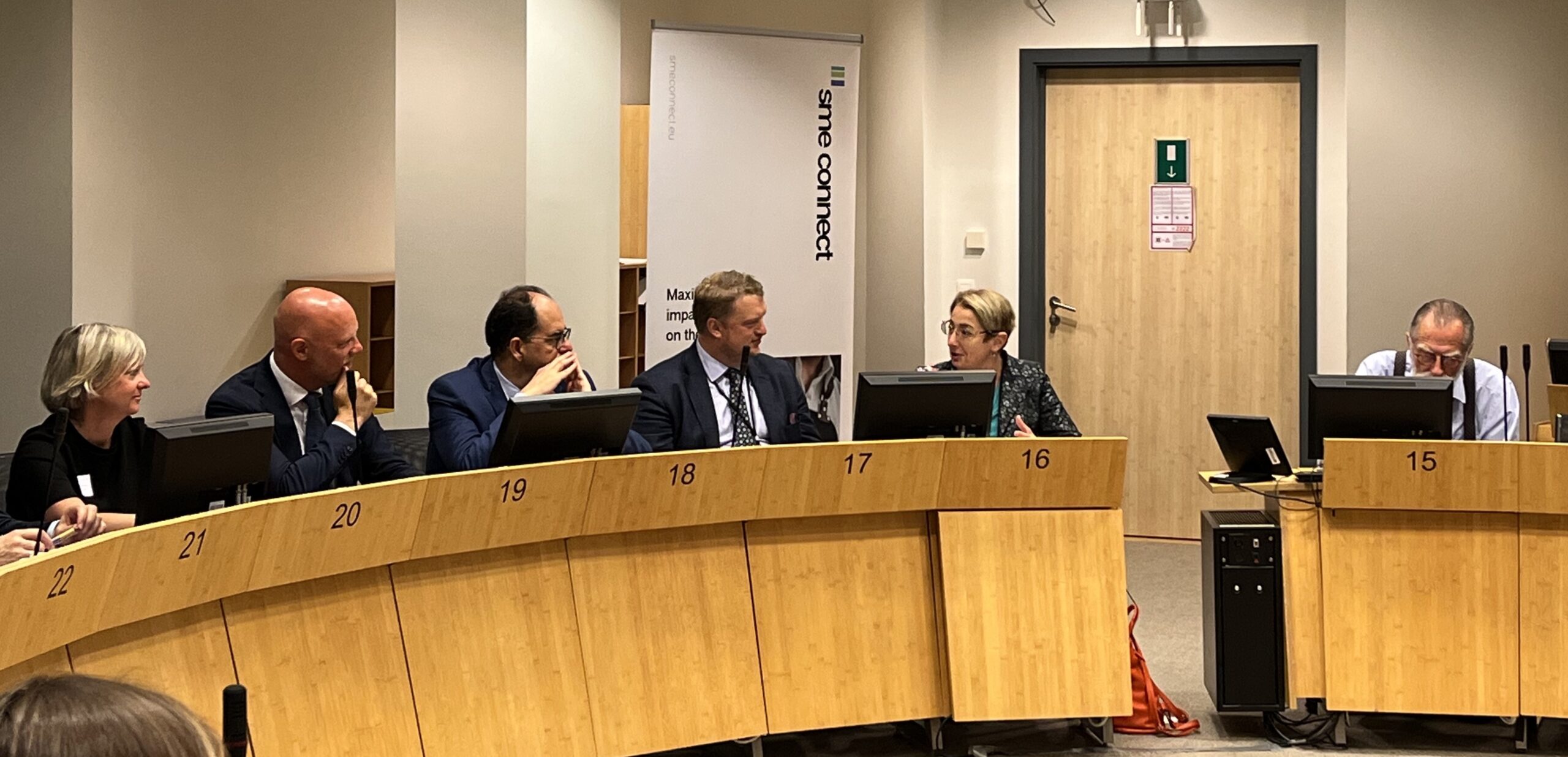 MILENA ANGELOVA stressed the need to support and strengthen solopreneurs amidst economic challenges and pointed out Europe’s diminishing global economic influence and widening gap with the US economy. She said there is a declining entrepreneurial spirit across Europe, attributing it to the security of traditional employment over entrepreneurship. Regarding regulatory burdens, she noted the significant challenge posed by over 850 new legal obligations imposed on businesses in recent years. Entrepreneurs often lack the time to understand these legislative changes amidst consecutive crises like COVID-19, geopolitical tensions, and energy spikes, that have strained their reserves. Therefore, she stressed the critical need for support and improved access to finance for entrepreneurs. She concluded that it is imperative that we do our utmost to emphasize that being an entrepreneur is the engine of the European economy.
MILENA ANGELOVA stressed the need to support and strengthen solopreneurs amidst economic challenges and pointed out Europe’s diminishing global economic influence and widening gap with the US economy. She said there is a declining entrepreneurial spirit across Europe, attributing it to the security of traditional employment over entrepreneurship. Regarding regulatory burdens, she noted the significant challenge posed by over 850 new legal obligations imposed on businesses in recent years. Entrepreneurs often lack the time to understand these legislative changes amidst consecutive crises like COVID-19, geopolitical tensions, and energy spikes, that have strained their reserves. Therefore, she stressed the critical need for support and improved access to finance for entrepreneurs. She concluded that it is imperative that we do our utmost to emphasize that being an entrepreneur is the engine of the European economy.
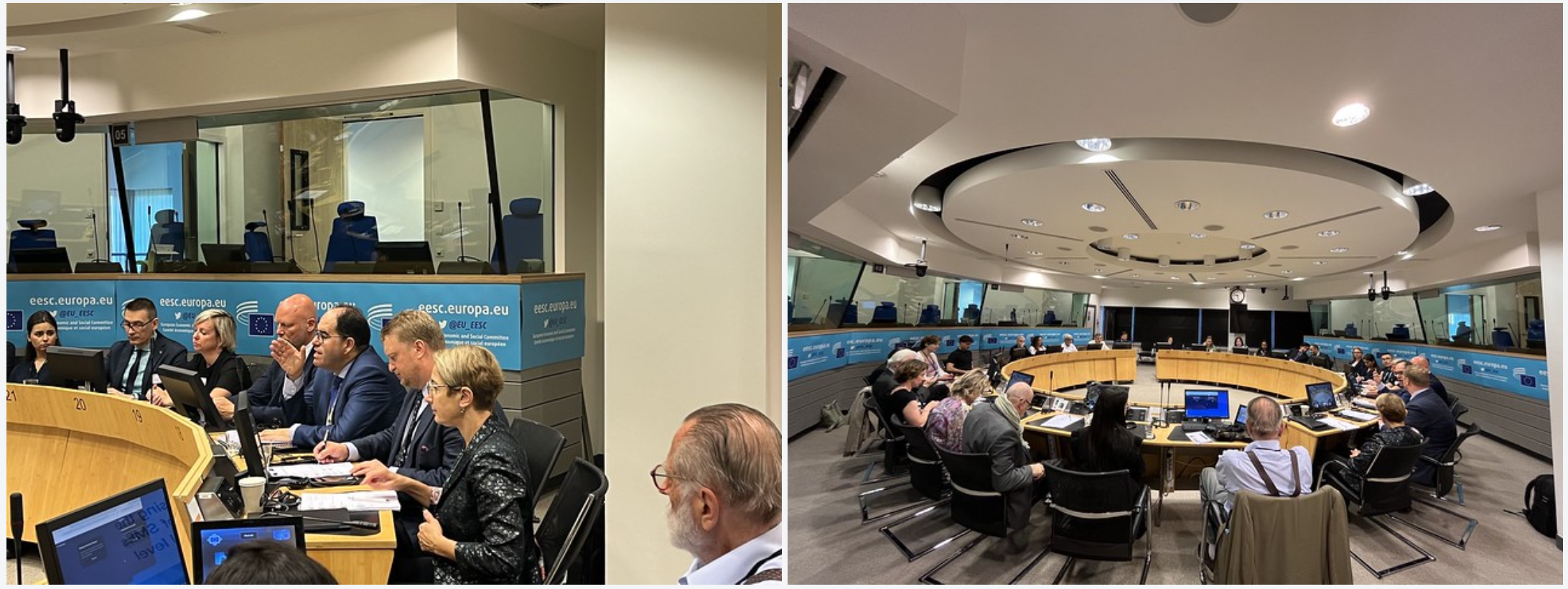 BONIFACIO GARCIA PORRAS, Head of Unit SMEs at DG GROW, echoed on previous points on the need for radical economic changes to stay competitive. We need to shift our focus from just protecting SMEs to empowering them as leaders of change. He underscored the Commission’s commitment to supporting SMEs, focusing on regulatory balance and market impact. He expressed concerns about declining SME productivity compared to larger enterprises but also noted their resilience and growth potential. He emphasized the role of SMEs in job creation and economic growth, and advocated for increased investment in capital, human resources and skills. The Commission is committed to reducing regulatory burdens and enhancing access to finance for SMEs. Initiatives, like the Late Payment Directive, European Digital Innovation Hubs, Enterprise Europe Network are designed to support SMEs financially and programs such as Erasmus for Young Entrepreneurs help develop essential skills for the future workforce. He said that boosting SME productivity is key for Europe’s economic revival. To conclude, he said that we need to send a clear message to entrepreneurs: if you want to grow, Europe is the place for you to grow.
BONIFACIO GARCIA PORRAS, Head of Unit SMEs at DG GROW, echoed on previous points on the need for radical economic changes to stay competitive. We need to shift our focus from just protecting SMEs to empowering them as leaders of change. He underscored the Commission’s commitment to supporting SMEs, focusing on regulatory balance and market impact. He expressed concerns about declining SME productivity compared to larger enterprises but also noted their resilience and growth potential. He emphasized the role of SMEs in job creation and economic growth, and advocated for increased investment in capital, human resources and skills. The Commission is committed to reducing regulatory burdens and enhancing access to finance for SMEs. Initiatives, like the Late Payment Directive, European Digital Innovation Hubs, Enterprise Europe Network are designed to support SMEs financially and programs such as Erasmus for Young Entrepreneurs help develop essential skills for the future workforce. He said that boosting SME productivity is key for Europe’s economic revival. To conclude, he said that we need to send a clear message to entrepreneurs: if you want to grow, Europe is the place for you to grow.
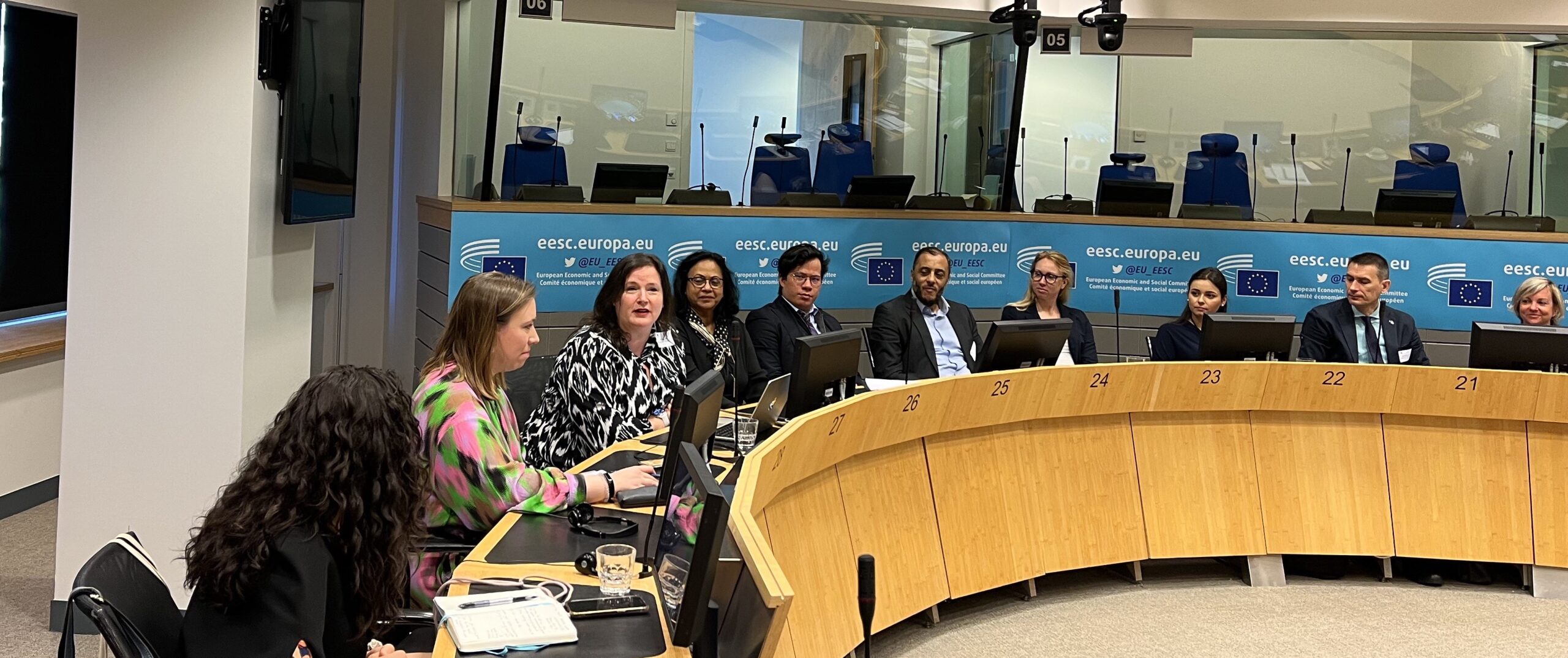
In exploring the entrepreneurial mindset across different stages of life, ELIN MCCALLUM underscored their commitment to entrepreneurial learning. She highlighted the importance of nurturing skills that encourage individuals to think and act entrepreneurially. Instilling these skills across all age groups is pivotal for their organization. She emphasized that entrepreneurial skills encompass more than just business sense – but also identifying opportunities, fostering creativity, taking initiative and navigating risks. She stressed the importance of integrating these skills into the education system early on, to foster resilience and confidence. This approach helps individuals recognize their potential for creativity and innovation, crucial for personal and professional development.
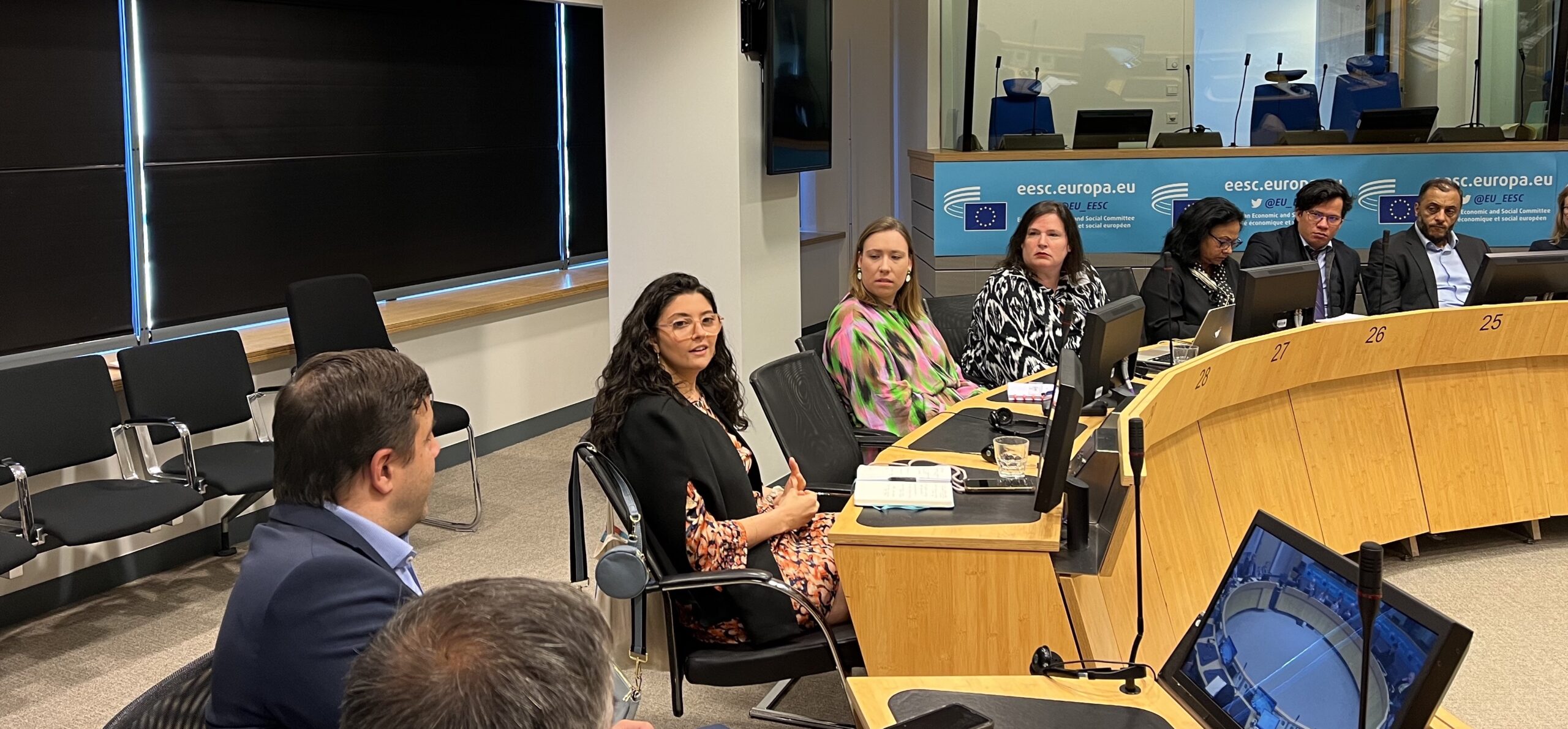
From the perspective of young entrepreneurs, GIORGIA CALVARESI highlighted that Junior Enterprises encompass a network of 35,000 students across Europe. Many students feel dissatisfied with traditional university education in preparing them for the future, which led them to join this initiative. These student-run enterprises operate like real companies, providing hands-on experience in client acquisition and management, essential for entrepreneurial skills. She drew parallels to obtaining a driver’s license, where passing a test does not equate to immediate readiness, questioning why we expect young graduates to seamlessly transition into the workforce without practical experience. Highlighting their impact, she stated that 75% of junior entrepreneurs feel confident in their business skills, with 60% aiming to fund their own companies within a decade of inception. Additionally, 30% successfully launched businesses right after graduation, and 98% secured employment within six months post-graduation. These figures highlight the practical benefits of participating in junior enterprises despite concerns about graduates’ workplace readiness. She emphasized the importance of lifelong learning beyond university and urged for wider acceptance and support for these initiatives within universities – bridging the gap between education and the skills demanded by the job market.
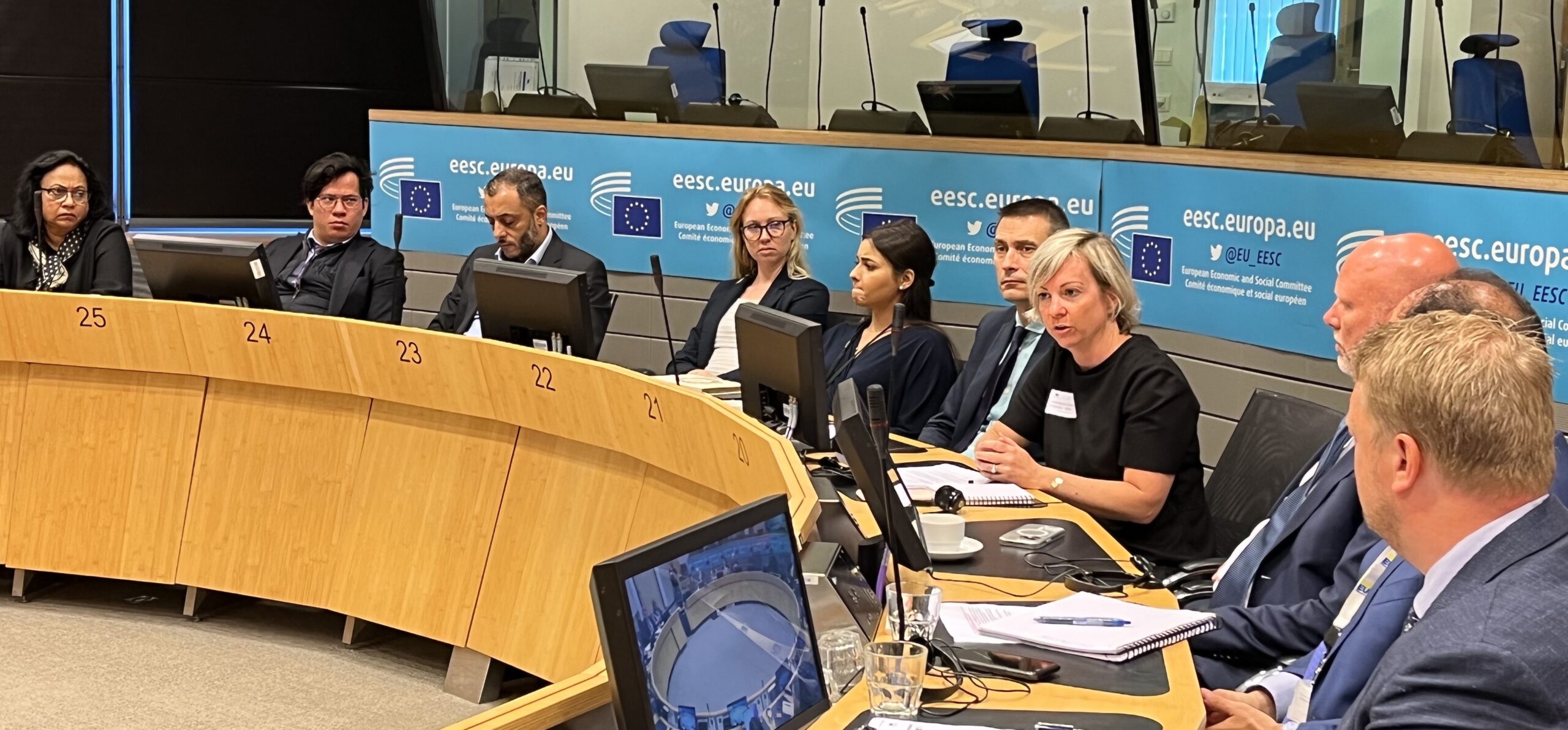
AMELIE BARACAT-EMPEREUR pointed out that 25 million of European Gen Zs show interest towards starting their own businesses or working independently. This trend, encompassing over 50% of Gen Z, highlights a shift towards solo entrepreneurship driven by flexibility and digital accessibility. To support these entrepreneurs, we need policies that reduce regulatory burdens and enhance the investment environment across the EU. Education and training are crucial to equip aspiring entrepreneurs with necessary skills. Collaboration between public and private sectors is essential to provide the infrastructure and support needed for solo entrepreneurs. She emphasized the importance of inclusive policies that cater to solo entrepreneurs and small businesses, aiming to foster a competitive European economy.
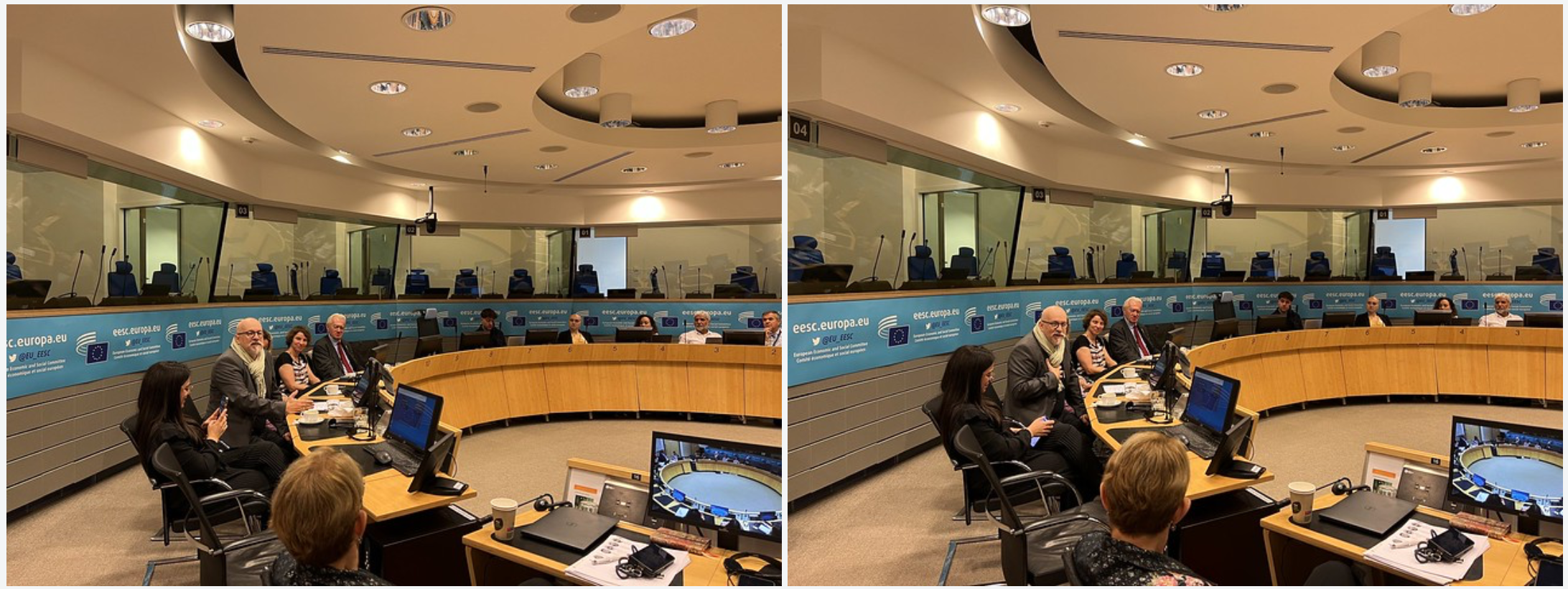
DIETER MICHAEL GROHMANN, an artist and filmmaker, representing solo entrepreneurs, emphasized his independence and rejection of conventional work hours, stating that his art is his life. He criticized regulations and frameworks that hinder creative freedom, recounting his experiences with limited contracts and bureaucratic obstacles. Despite challenges, he highlighted his previous project, a 3D art installation for the European Commission on the topic “How it feels to be an entrepreneur” and his role as an independent consultant. He called for a more impactful approach from institutions and rejected the notion of entrepreneurship as mere employment – instead it is a freedom from excessive regulation. Finally, he expressed a longing for unburdened creativity and openness in market opportunities.
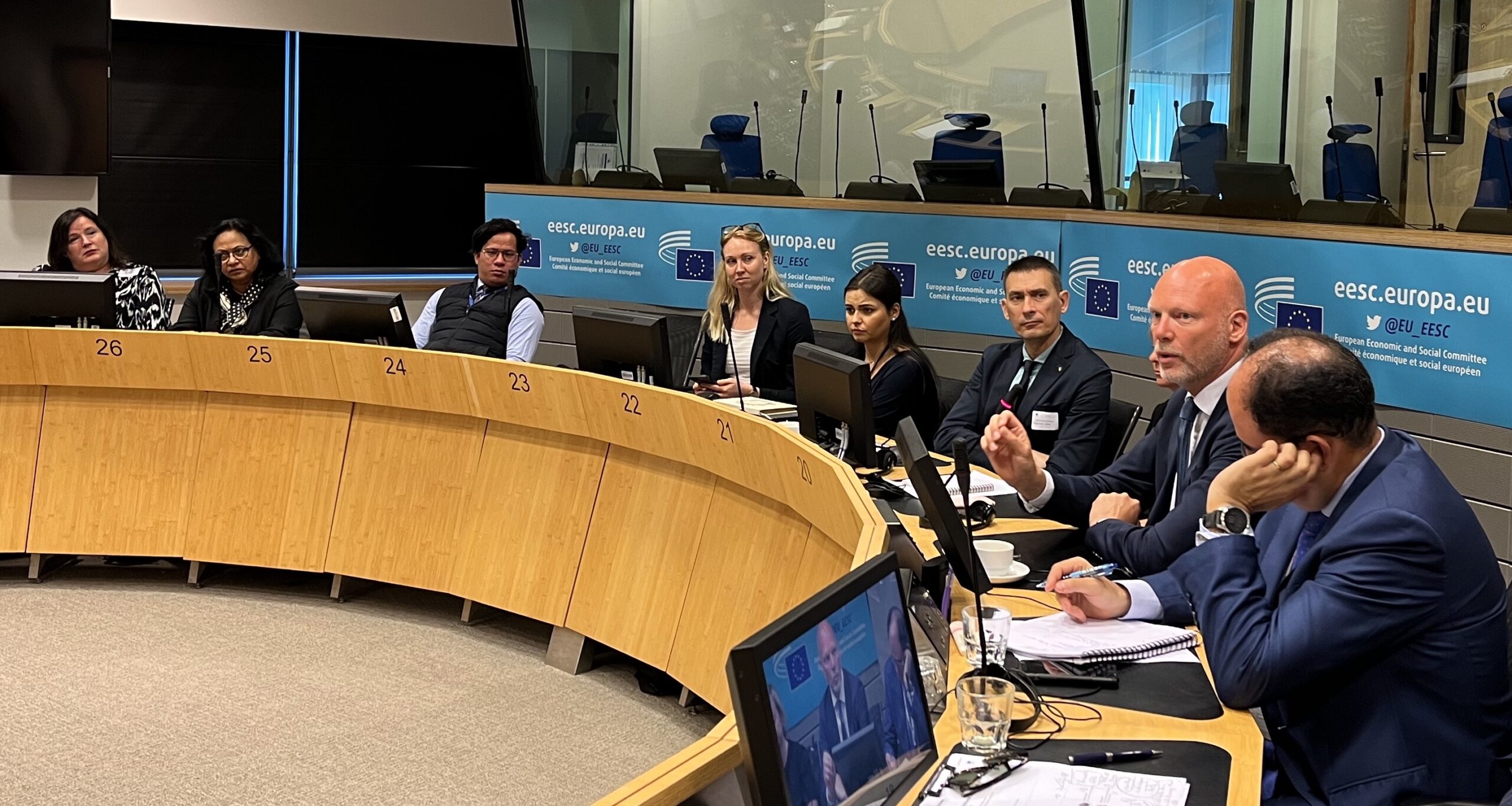
During the discussion, JÖRGEN WARBORN MEP remarked that the only way to drive growth in Europe is through entrepreneurship, stating that there is no other recipe, as that is where growth comes from – from people that take risks with aspiration to make a difference and change for the world. He identified two key actions needed to foster entrepreneurship, one of which can be addressed politically – reduction of the regulatory burden. He acknowledged the positive impact of the “one in, one out” policy, which limits additional administrative costs, but noted that regulatory burden extends beyond administrative tasks, and there should be a push for “one in two out” policy. He proposed that the European Parliament should reject any new legislative proposal that lacks an impact assessment. Additionally, he introduced an idea that entrepreneurs should charge the European Commission for the information they provide. This would make the Commission more selective in its data requests, ensuring they only seek information they truly need. This approach would help reduce unnecessary burdens on entrepreneurs and promote a more efficient regulatory environment. The second action that needs to be taken, is еру change of mindset and of the narrative in society as a whole – we need to speak to speak of entrepreneurs as of heroes of the society.
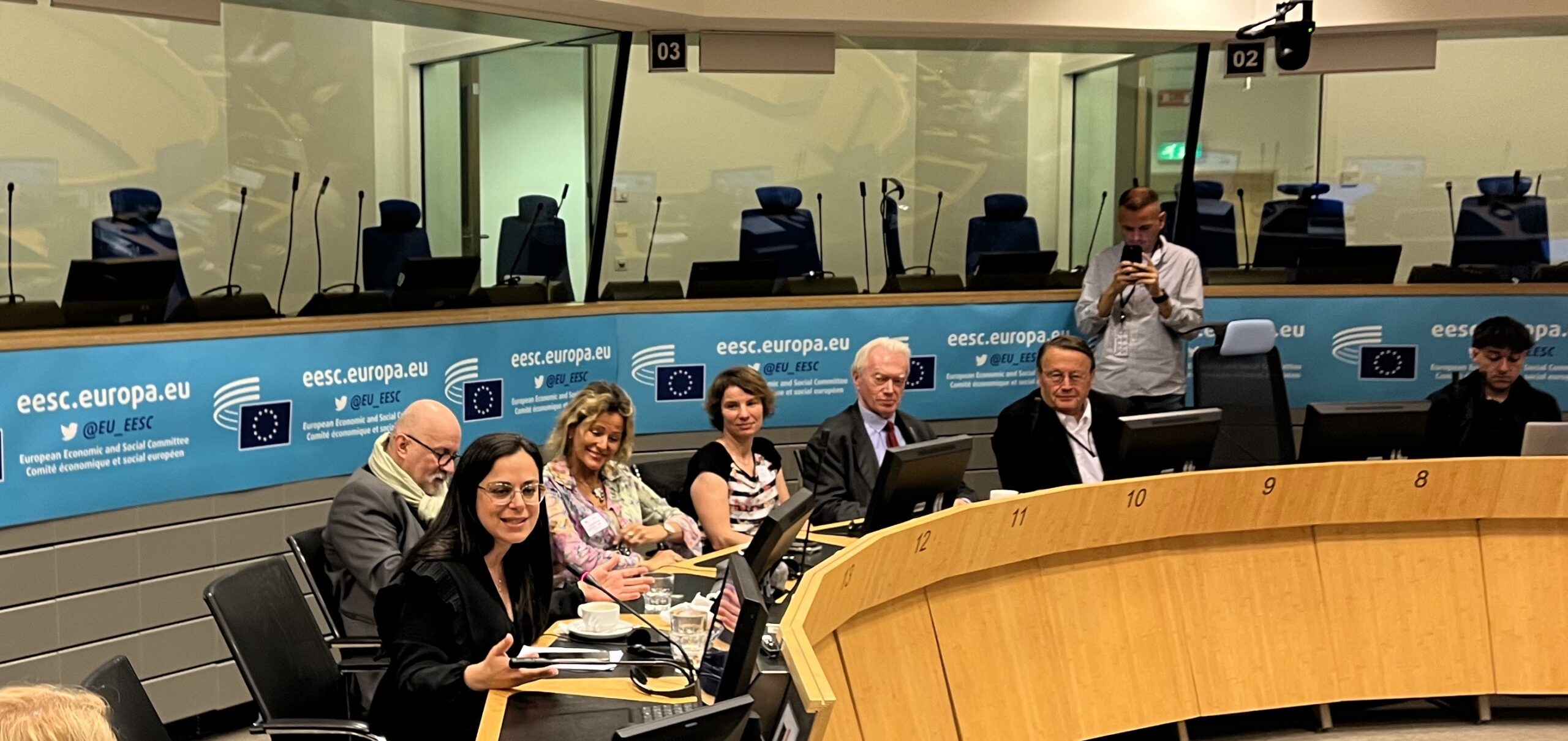
JOSIANNE CUTAJAR MEP pointed out that while it is common to lump all skills together, there is a critical need to focus on soft skills, especially to support new students entering the workplace and those interested in entrepreneurship. She acknowledged the challenges involved in taking that first step into entrepreneurship and emphasized the role of mentors and role models in helping with these skills and practical workplace experiences. She stressed the importance of collaboration and support of gender balance and societal contributions. Along with promoting female entrepreneurship, there should be a strategy in place for the overall improvement of societal contributions. In an age where values often seem to be shrinking and people tend to think more of themselves than the collective good, she stressed the importance of ethics and collaboration. She pointed out that despite being competitors, working together can bring significant benefits in the face of common challenges like climate change and other global issues.
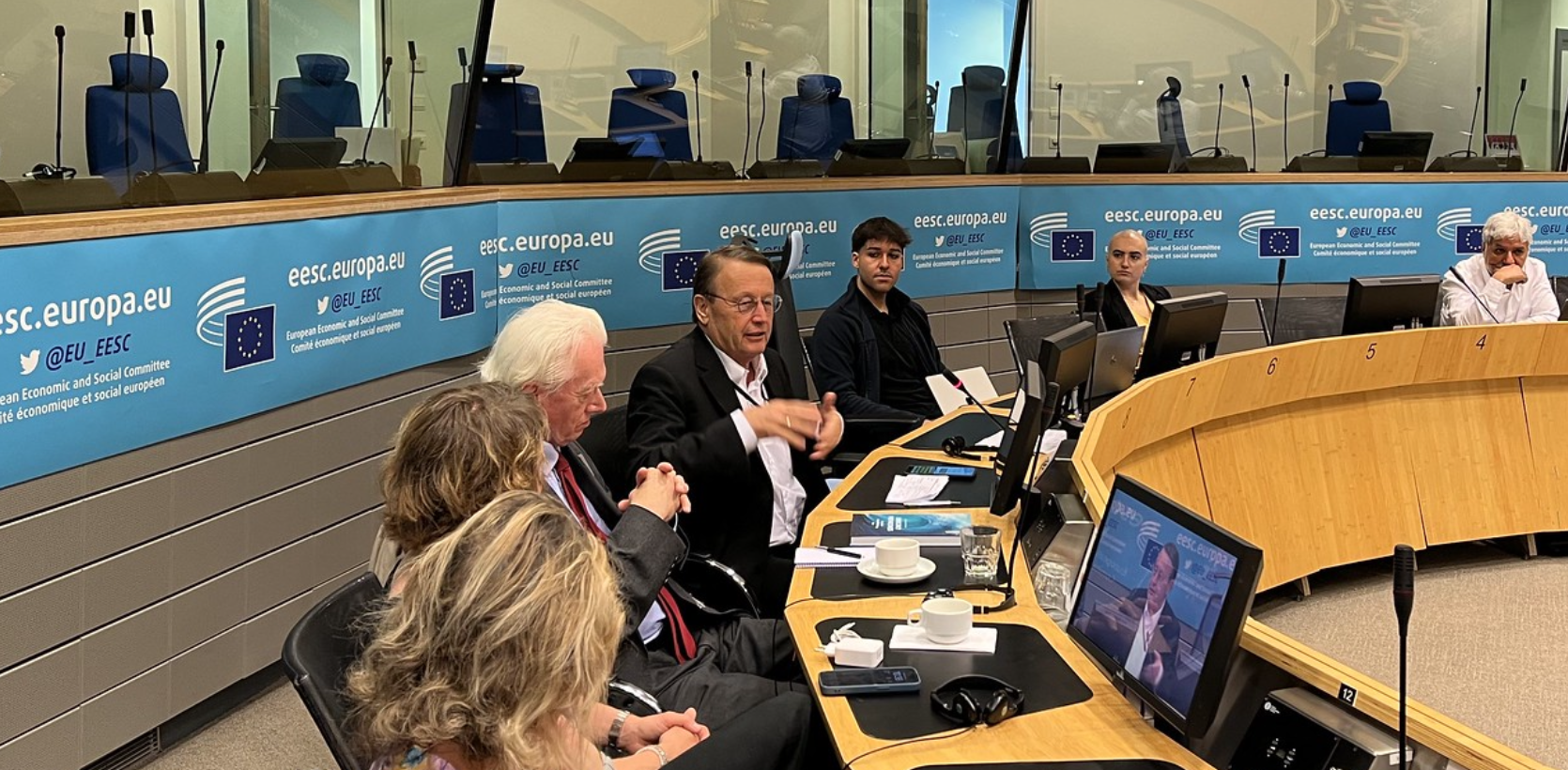
DR. PAUL RÜBIG, reflecting on recent experiences with legislation like the Nature Conservation Law, criticized its complexity and potential negative impact on entrepreneurial decision-making. He drew parallels to centralized governance seen in Eastern countries and stressed the need to prioritize entrepreneurial thinking and competition, advocating for improved communication from the European Union to promote these values effectively. He also discussed the importance of education and the shortage of engineers in Europe, attributing it partly to economic incentives favoring other professions. Lastly, he called for improved communication strategies within the European Commission to better convey its messages.
In conclusion, given the vastness of this topic and the need for ongoing discussion, SME Connect is actively developing a solo entrepreneurship network and planning to organize a Better Regulation Forum this autumn, to address the unique challenges faced by solopreneurs and create a supportive environment where their voices can be heard and their needs addressed.